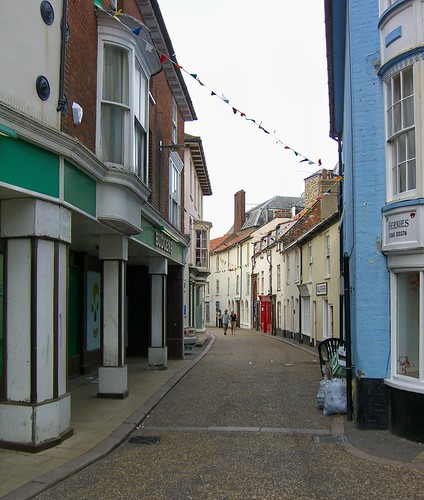The news that Argos will close or re-locate 75 stores must be one of the final nails in the coffin for the UK High Street. This follows on from a near four year deluge of retail bad news since Woolworth’s decided to close their doors in December 2008. The proportion of sales that take place on the high street has fallen to well below half of the overall total, and it is continuing to fall as people spend more at out-of-town shopping centres and on the Internet. Town centre sales were already in long term decline even before anyone had heard of the Internet. The Internet merely accelerated a 20 year trend and is now even taking some of the shine off the out-of-town centres!

Supermarkets and shopping centres
The appearance in the 1980s and 1990s of large scale supermarkets and shopping centres situated near main roads with acres of free parking spaces, presented a major challenge to the high street. The supermarkets pretty much wiped out butchers, fishmongers and independent bakers even before they started taking on clothes and electronic retailers. With the exception of fresh food and a few specialist items like shoes, high fashion and DIY products there is very little that the high street can deliver better or cheaper online. Betting shops, travel agents, book shops, music retailers, electronic goods (the shopping list goes on) are barely surviving. It is amazing that there is still a large population of estate agents when nearly everyone begins their house hunting at the home of Rightmove.
As a consequence, the high street is now populated by pawn brokers, a few jewellers (diversifying into buying gold), charity shops, hairdressers, newsagents and a smattering of coffee and bakery chains. It’s a good job that the UK has embraced a little bit of continental café culture as there would otherwise have been even more empty shops than the one in seven currently. Despite this low base it is expected that a further four out of ten shops will close in the next five years.
Other reasons for ther decline
There are other culprits in the continued decline of the high street. Most councils seem to have made a concerted effort to use parking charges as an opportunity to drive motorists away from town centres whilst often doing little to improve public transport or cycling and bike storage. One other group worthy of a mention are the greedy landlords, mostly our pension funds, who haven’t got the hang of supply and demand and won’t reduce the retail rents (this also impacting on business rates).
Future prospects
The prospects for the high street do not look great although the life support machine isn’t needed just yet. There may be a glimmer of hope in the growth of high street restaurants and coffee shops, beauticians and some service sector activities like gymnasiums and clubs. Otherwise the most likely solution is that some of the empty shops convert to offices or even to residential. The change of use will still be attractive for businesses and home owners because town centres or high streets are unlikely to die out completely – it’s just that they will have far fewer shops!
Attached Images:
- License: Creative Commons image source
Richard Bloomfield is the Website Editor for The Workplace Depot.

